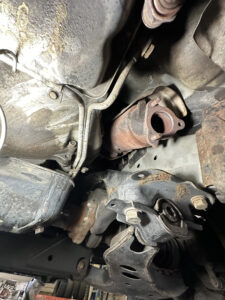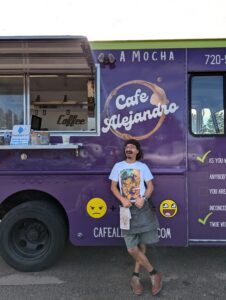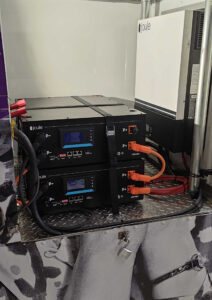Regional Air Quality Council Launches Two Programs Aimed at Reducing Vehicle Emissions and Protecting Coloradans’ Health
Updated: November 21, 2024While the 2025 summer ozone season is half a year away, the Regional Air Quality Council (RAQC) is launching two programs to help curb emissions ahead of next summer. A new vehicle repair program provides no-cost repairs to help older cars meet emissions standards, and a mobile business electrification program helps food trucks and similar businesses swap out dirty, gas-powered generators for zero emissions electric systems. Both programs finished their soft launch phases last month and are now accepting applications.
CAAR
The Clean Air Auto Repair, or CAAR program, helps owners of older vehicles who are failing vehicle emissions standards receive no-cost repairs for emissions related repairs. Under Colorado law, when a car fails emissions, an owner can attempt repairs and receive a waiver in many instances for a good faith attempt, even if the car continues to violate emissions standards. Lower income car owners can also receive a hardship waiver that exempts them from needing to conduct repairs after failing emissions. While these policies are good from an economic justice perspective, they are terrible for air quality, leaving high polluting cars on the road. CAAR replaces failed catalytic converters, oxygen sensors, leaks in fuel lines, and similar problems that cause pollution so cars can meet emissions standards. The CAAR program is a reimaging and expansion of a previous, smaller vehicle repair program, working with the state emissions testing facilities and private repair shops to evaluate and repair cars in the greater Denver metro area.
“Colorado is all-in for EV conversion,” said RAQC program coordinator Jacob LaBure, “but that transition will take a generation. In the meantime, we need to minimize emissions from older gas and diesel cars as much as possible. This program is repairing some of the highest polluting passenger vehicles on the roads, improving air quality and protecting the health of those around high polluting cars.”

The exhaust system on the underside of a gas-powered vehicle, repaired through the RAQC’s Clean Air Auto Repair (CAAR) program. Credit: Jacob LaBure.
Engines Off
The RAQC is also launching a new electrification program that helps food truck owners and other mobile businesses upgrade dirty generators for zero emissions power stations. Small business owners can receive a grant for 80% of the cost of batteries and related power station infrastructure, up to $20,000, for their new electric system when they recycle their gas or diesel generator. Participants are free to work with the power station (and solar, if applicable) companies of their choice and RAQC staff can guide applicants through options so they can be better informed when deciding on a company to work with. The program just finished a soft launch by providing grants to 19 food trucks on the Front Range, with 5 of those systems already delivered or installed. With the initial program a success, RAQC is opening the application process to more companies.
Alex Maloof, owner of Cafe Alejandro coffee truck, was one of the first to receive his power station with support from a RAQC grant.
“Getting into the Food Truck business, one of the first things I wanted to incorporate was to have the cafe area of my coffee truck run off electrical power. To be silent, stealthy, environmentally exponentially more friendly, and more technologically savvy. However, this aspect was absolutely not possible financially upon startup. “My truck came with a generator,” explained Alejandro, who added that customers are already noticing how much quieter and better of an experience his food truck is compared to others – they don’t have to shout over a generator to order.
Food trucks are a staple of businesses in Denver and other urban areas, but also across the Front Range, as a nearly ubiquitous sight at farmer’s markets, breweries, and major community events. Electrifying them benefits overall air quality and has a direct benefit to the food truck works and their customers, who no longer need to breathe in diesel fumes to support a local business at their favorite community event.
Both programs are funded through federal highway dollars, facilitated through the Colorado Department of Transportation and the Denver Regional Council of Governments, with funds available through 2027. Funding is available for vehicles operating in Adams, Arapahoe, Boulder, Broomfield, Denver, Douglas or Jefferson counties. The RAQC is continuing to create and expand programs that help residents and businesses reduce their air pollution impact in addition to the organization’s regulatory efforts and hopes to expand these programs to additional counties if funding becomes available.
Residents with failing cars can learn more and apply for the repair program at CleanAirAutoRepair.org.
Food Truck and other mobile business owners can learn more and apply for grants at EnginesOff.org/food-trucks.
RAQC staff are available for interviews and additional information about both programs.
Media Contact: David Sabados
Communications, Programs, and Government Affairs Director, Regional Air Quality Council



